Open Cell Spray Foam Application
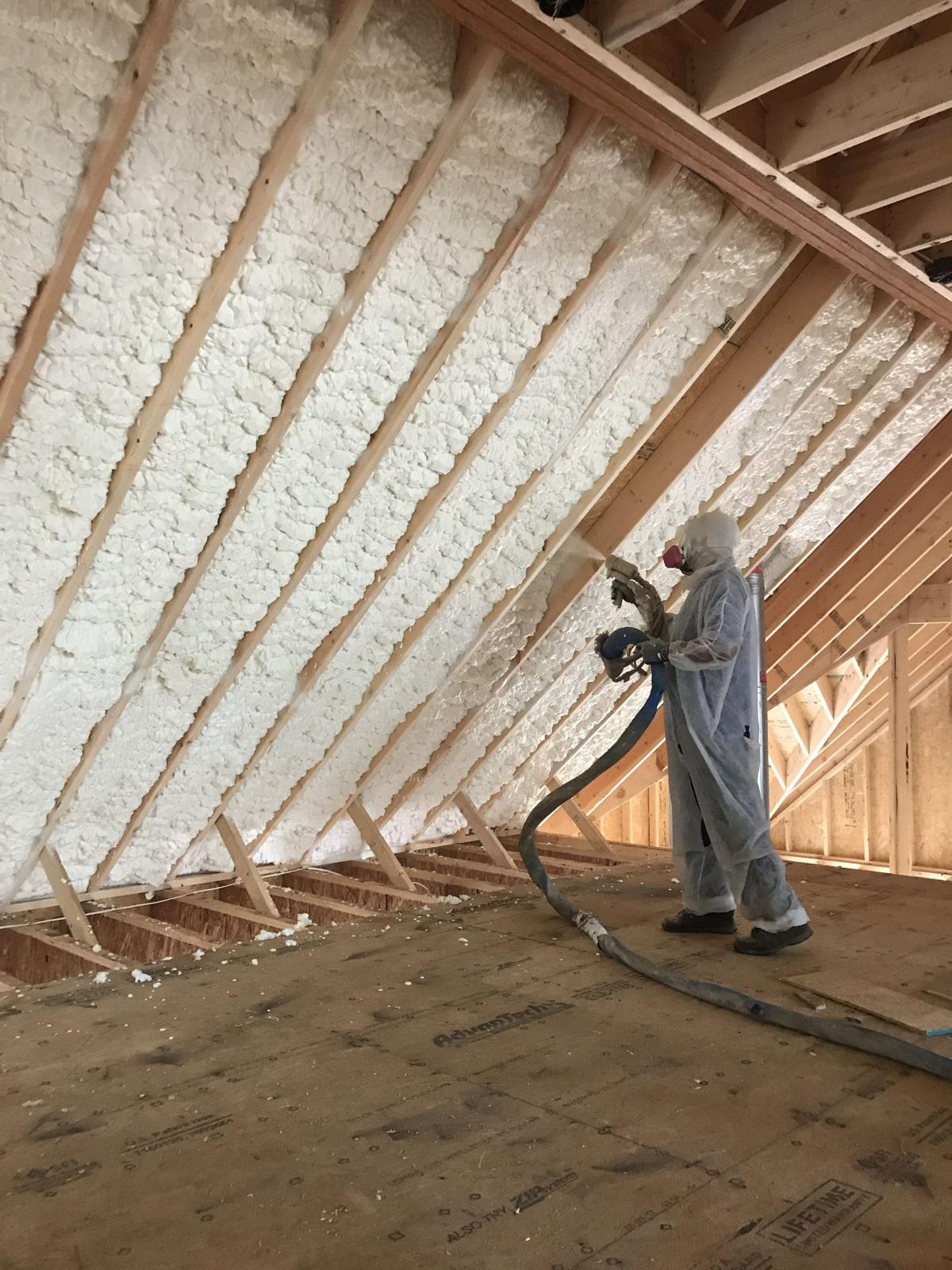
Open Cell Spray Foam Application
Open cell spray foam is a versatile insulation material that expands upon application to fill gaps and cracks, creating an effective air barrier. This foam has a softer, more flexible structure compared to closed cell foam, making it ideal for soundproofing and thermal insulation. Commonly used in walls, attics, and ceilings, open cell spray foam provides excellent air sealing and can contribute to energy savings by preventing air leakage.
It also allows for moisture permeability, reducing the likelihood of moisture build-up and related issues. Open cell foam is widely used in both residential and commercial spaces for its affordability and effective insulation. R-value: Open cell spray foam has an R-value of approximately R-3.5 to R-3.7 per inch, providing good thermal resistance. Approximate Cost: The cost of open cell spray foam insulation generally ranges from $0.45 to $0.65 per board foot, depending on factors such as project size, location, and required thickness.
Places for Application
- Attics
- Exterior & Interior Walls
- Ceilings
- Basements
- Crawlspaces
- Places where there is no moisture
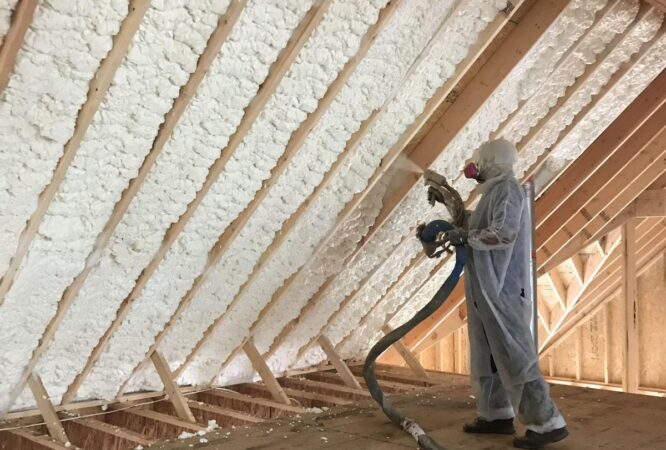
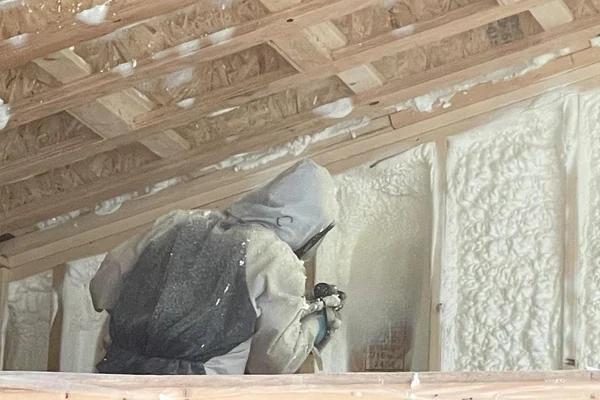
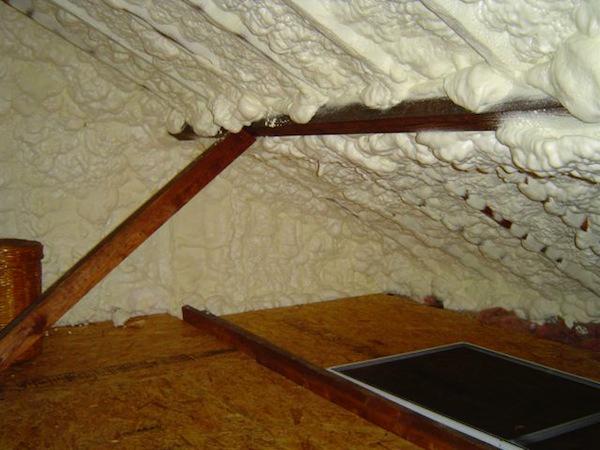
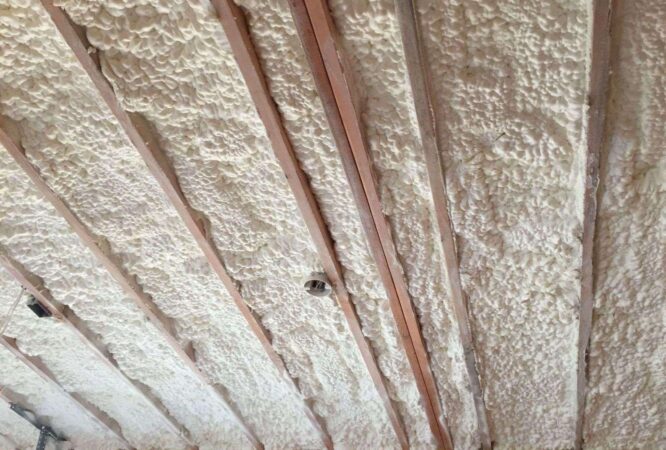
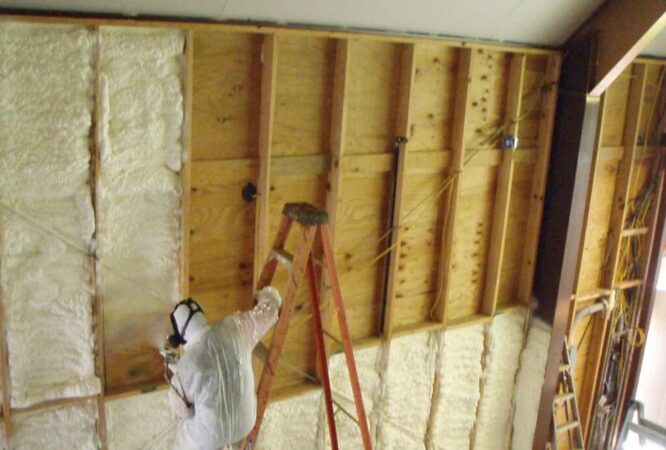
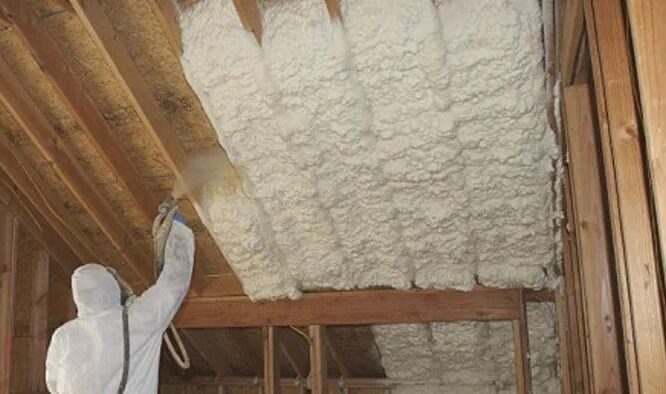
Advantages
- Cost-effective: cost effective compared to other applications.
- Soundproofing: Provides excellent noise reduction due to its open-cell structure.
- Air sealing: Effectively blocks air infiltration, improving energy efficiency.
- Vapor permeability: Allows moisture to pass through, reducing the risk of trapped moisture and mold growth.
- Flexible: Expands to fill uneven spaces, sealing around wires and pipes.
Benefits/Results after Application
Open-cell foam is more affordable, making it a great choice for homeowners or businesses looking for effective insulation without the higher price tag of closed-cell foam.
The open-cell structure absorbs sound waves, reducing noise transfer between rooms or from outside, enhancing comfort in homes and offices.
By blocking drafts and leaks, open-cell spray foam reduces the need for heating or cooling, cutting energy costs significantly over time.
Its flexibility makes it easier to install around electrical wiring, plumbing, and in tight corners, offering full insulation without the need for extra cutting or fitting.
Application Process
- Specialty Equipment installation
- The foam is sprayed onto the surface
- It expands to fill cavities and small gaps.
- Once applied, it hardens but stays flexible, forming an air seal.
Download Brochures
Expectations while application process:
Noise and Odor
Equipment will produce noise, and there might be some odors during application, but these dissipate quickly.
Ventilation
The area will need to be well-ventilated during and after application.
Temporary Displacement
You may need to vacate the area being insulated for a few hours to allow the foam to set and cure.
Comparison Between Open Cell and Closed Cell Spray Foam
Open Cell Foam
Closed Cell Foam
Low (0.5 lb/ft³)
High (2 lb/ft³)
Lower (R-3.5 to R-4 per inch)
Higher (R-6 to R-7 per inch)
Cost Effective
Cost Effective
Excellent due to open-cell structure
Good option, not design for sound proofing
No, allows moisture to pass through
Yes, acts as a vapor barrier
Flexible, not as rigid
Rigid, adds structural strength
Interior walls, attics, soundproofing, not in places with moisture is present
Exterior walls, roofs,underfloors, basements and areas with high moisture ris
